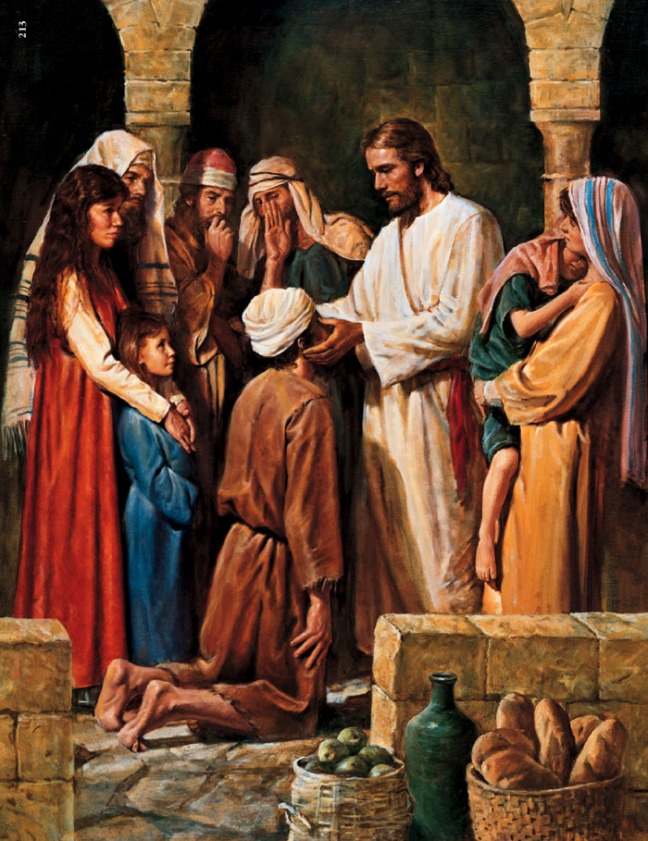WHAT THE CONCEPT OF MARVEL’S DAREDEVIL HAS TO SAY ABOUT THE CORELATION OF DISABILITY WITH INABILITY
“Foggy: You’re blind, right?
Matt: Uh, yeah, so they tell me. I hope that won’t be a problem.”
-Daredevil Series (2015-to present)

I had a very interesting discussion the other day with a friend who was curious about connecting comic books with the Bible. Where he is most concerned-and I understand him-is how is it possible to connect the two yet they do not have a common message? I do understand if some of you reading my blogs right now are equally disturbed by this. What I will say is that in the process of my walk with the Lord, I came to learn that the ‘secular’ realm does not give answers but it does raise concerns. The problem comes in when the church does not provide answers in and through the available media to these concerns/problems raised. As I pointed out in one of my posts, ‘these issues are progressively getting no sufficient answers from the church and are progressively becoming narrowed.’
Where the trouble comes in is the presence of a focus on materialism as well as a heavy reliance on them as the consolation for dealing with lack, pain, heartache as well the reality of one’s situation. Some of you might dispute this but study music over the last 40 years and you’ll observe what nearly every non-believer is taking notice of…that music ‘is not as good as it used to be’. This ‘good’ is linked to the positive values that were passed along through music rather than sidelining certain people groups in order to propagate one’s own fame–something comics like Marvel and DC sought to address in their own way. Now, comes in this post’s focus, on Daredevil and the concept of disability. Can a blind lawyer really exist?
Although Stan Lee, creator of Daredevil was having a ball creating characters in the 60s, it is said that he needed a character who’d stand out–but having an inability. The idea struck that he should have a character that would embody the idea of justice. That’s when the idea of a blind lawyer was born. As Stan himself said, “he’s blind and Lady Justice is blind so it kinda speaks for itself, doesn’t it?”. Now, Stan made things a little more interesting when he purposefully made Matt Murdock Christian and Catholic. Isn’t that a peculiar spin on ‘walking by faith not by sight’? I thought…
But come to think of it, the idea was brilliant. Matt is as much dependent on his new abilities to fight crime as he is on his faith to battle hatred, vengeance and the vices that tempt the heart. He is as much a hero possessing physical prowess as he is a saint trying to embody the core of his faith, justice. This aspect helps Matt stand out as a character of peace and hope [an emphasis that Marvel is no stranger to when it comes to presenting its characters as tragic heroes of some sort].
The question still remains: Why give Matt a faith/religious-inclination if such a dimension to a character does not impact the character’s overall person? That’s what art/concepts do though. Artists often reflect themselves in their artwork in one way or another and also to one degree or another. This they often do by infusing into their characters certain aspects of their very own physical features, personality traits and or religious/philosophical/political inclination. Some good examples are J. Jonah Jameson and Stan Lee’s impatience and anger; Allan Moore and the DKIII Batman and most popularly Jerry Siegel and Joe Schuster.
But but buuuut, Stan Lee’s Jewish. Now, here is where I find this all the more interesting, but he has some inclination to the religious as he himself has seen the religious facet of society play out to some degree as a positive force. Biblically though, it was common thought to see a diseased person and conclude correctly that they were suffering because of an ancestor’s sin; where a parent or grandparent. Take for instance the man born blind (odd story to use as an example ey, for all y’all Bible geeks out there?). The man was blind because, according to Jesus, “So that the glory of God might be made manifest in him”.
Now, both perspectives–Stan’s and Jesus’ view are superficially similar but they make a point. The fact that both their subjects have disabilities is not in any way suggestive or mildly hinting at, inability. This thinking is what is seen humanly communicated by Stan Lee by transforming Matt Murdock into what is humanly possible…as a hero. For Jesus however, the blind man is restored and his status changed as God’s glory was manifested in his restoration. We might not see it yet but the thrust of this understanding is seen all the more clearly in the hymn…’Give Thanks’
“Give thanks with a grateful heart,
Give thanks, to the Holy One…
And now let the poor say I am rich,
Let the weak say ‘I am strong’,
Let blind say ‘I can see'”
Whereas some are healed and some are restored to see the world through very different means, the point remains that in Jesus the person we are created to be is realized. And whereas we are no heroes, we are made into something more. We are enabled in our spirits to declare to the world what we experience within that “We can do all things through Christ who strengthens me”.
